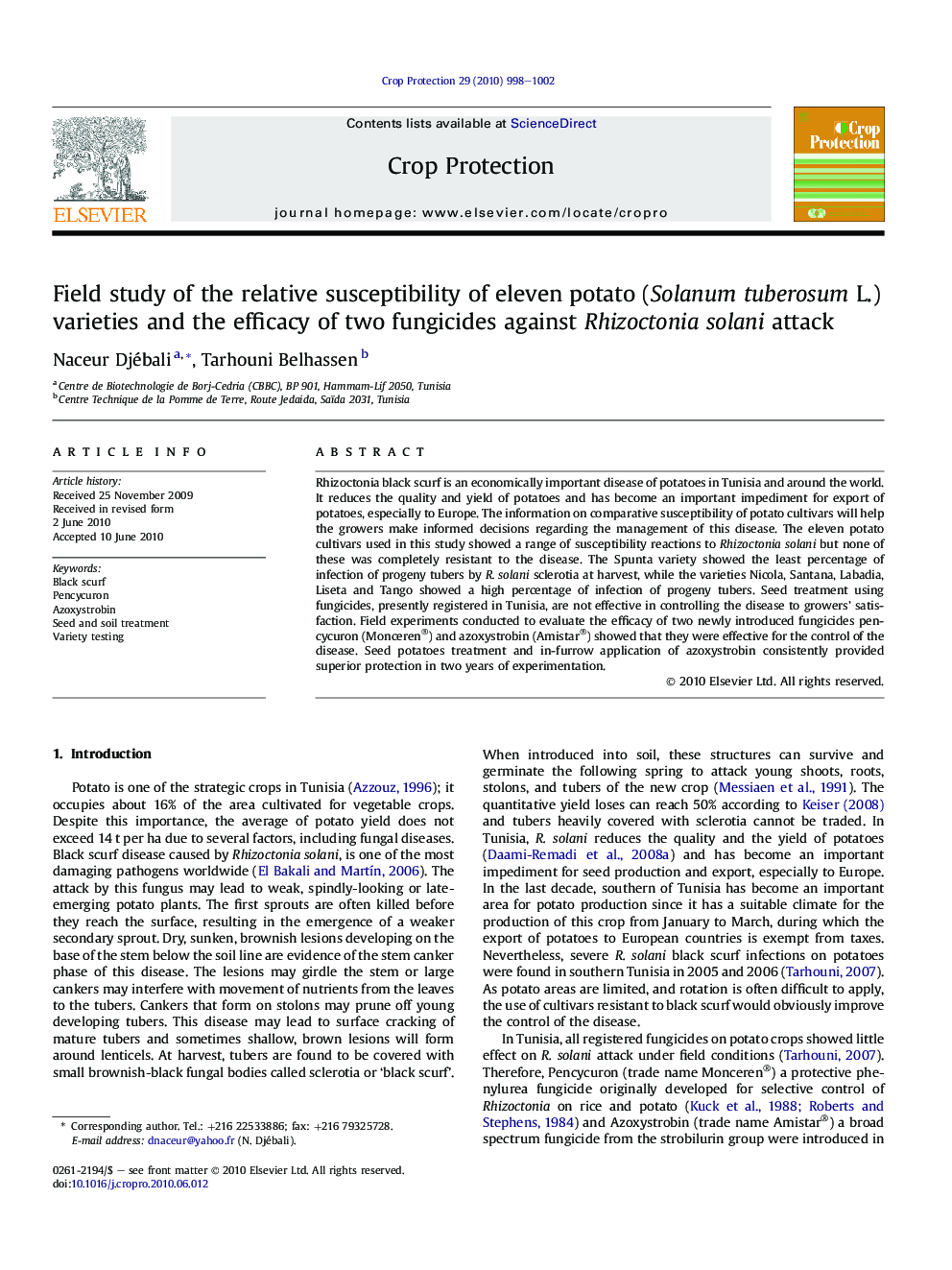| Article ID | Journal | Published Year | Pages | File Type |
|---|---|---|---|---|
| 4506695 | Crop Protection | 2010 | 5 Pages |
Rhizoctonia black scurf is an economically important disease of potatoes in Tunisia and around the world. It reduces the quality and yield of potatoes and has become an important impediment for export of potatoes, especially to Europe. The information on comparative susceptibility of potato cultivars will help the growers make informed decisions regarding the management of this disease. The eleven potato cultivars used in this study showed a range of susceptibility reactions to Rhizoctonia solani but none of these was completely resistant to the disease. The Spunta variety showed the least percentage of infection of progeny tubers by R. solani sclerotia at harvest, while the varieties Nicola, Santana, Labadia, Liseta and Tango showed a high percentage of infection of progeny tubers. Seed treatment using fungicides, presently registered in Tunisia, are not effective in controlling the disease to growers’ satisfaction. Field experiments conducted to evaluate the efficacy of two newly introduced fungicides pencycuron (Monceren®) and azoxystrobin (Amistar®) showed that they were effective for the control of the disease. Seed potatoes treatment and in-furrow application of azoxystrobin consistently provided superior protection in two years of experimentation.
